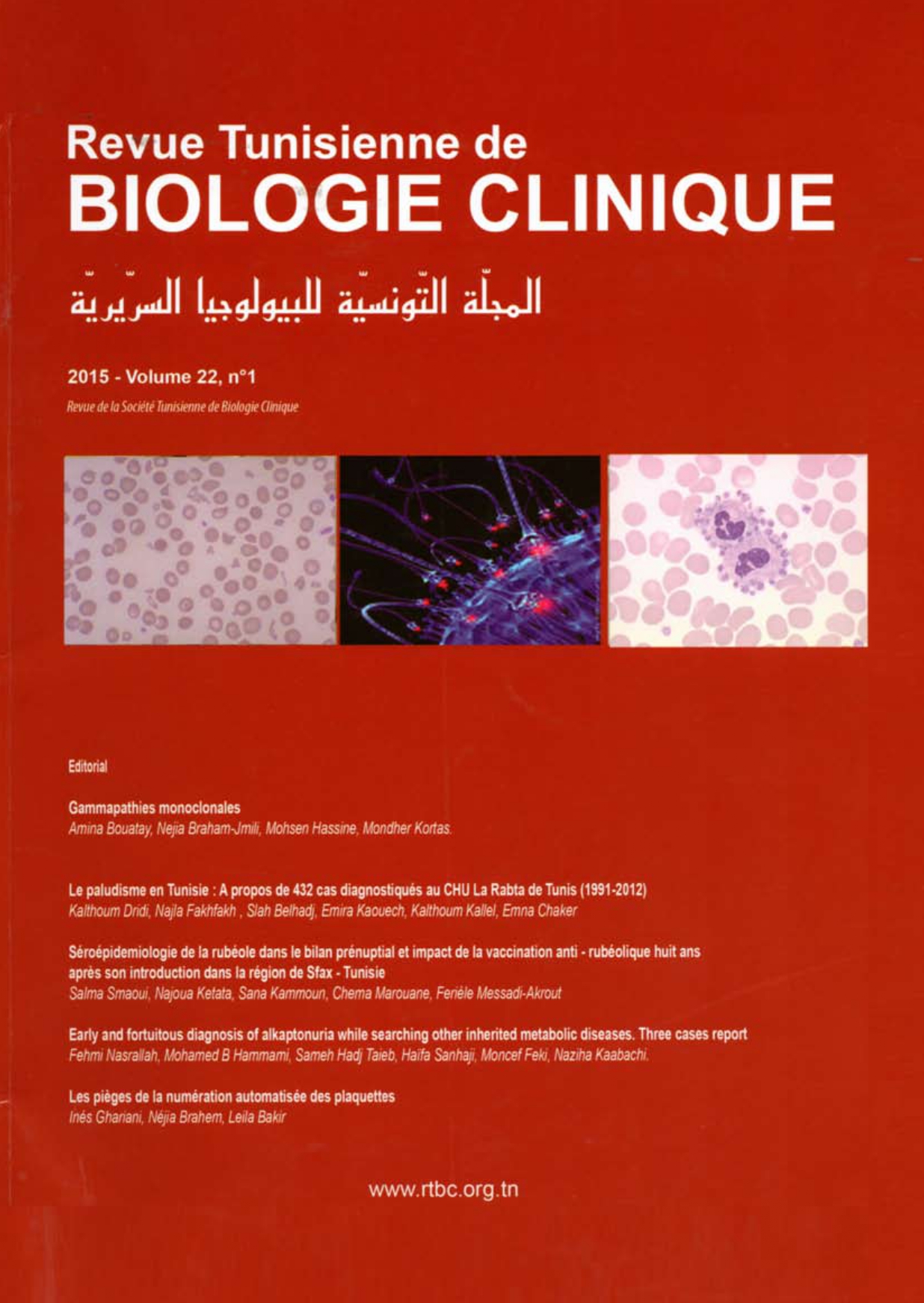Résumé
Introduction : La rubéole est une maladie à distribution mondiale, son importance en santé publique tient au risque de malformations quand la primo-infection survient chez la femme enceinte. Objectif : Notre étude est une étude séroépidémiologique qui a pour but d’évaluer le taux d’immunité à l’égard de la rubéole chez des femmes venant consulter dans le cadre de l’examen prénuptial dans la région de Sfax et d’étudier l’impact de la vaccination anti-rubéolique huit ans après son introduction en Tunisie en 2005. Matériel et méthodes : La recherche des anticorps antirubéoliques de type Ig G a été réalisée chez 71412 femmes durant une période de 18 ans (Janvier 1996-Décembre 2013). Résultats : Le taux de séropositivité était de 86,1%. L’augmentation de la séroprévalence globale avant et après 8 ans de la vaccination n’était pas significative (p=0,1). Cependant, une augmentation significative de la séroprévalence chez les femmes de moins de 25 ans a été notée (p<0,001) où elle est passée de 79,6% en 2004 à 96% en 2013. Conclusion : L’augmentation de la seroprévalence de la rubéole chez les femmes de moins de 25 ans serait en rapport avec la vaccination en masse qui a touché les filles scolarisées et non scolarisées entre 13 et 18 ans en 2005. Nos résultats montrent que la vaccination est très prometteuse pour l’éradication de la rubéole congénitale.

Ce travail est disponible sous la licence Creative Commons Attribution 4.0 International .
(c) Tous droits réservés Salma Smaoui, Najoua Ketata, Sana Kammoun, Marouane Chema, Fériele Messadi-Akrout 2015

